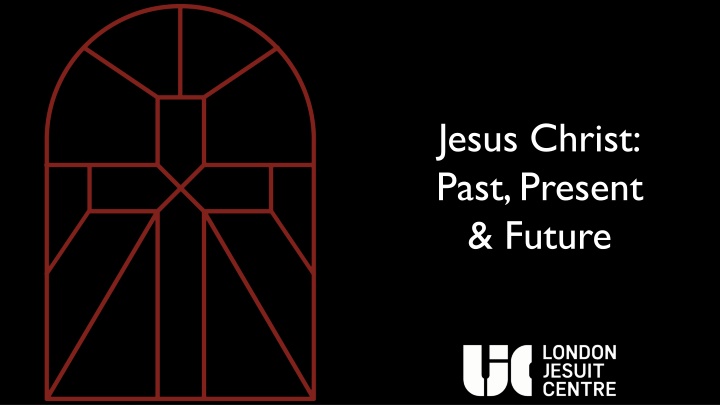
Ways of Knowing Jesus Christ in History and Today
Explore the journey of understanding Jesus Christ through historical events, faith, and personal experiences. Discover different ways of knowing and deepen your relationship with God through reflection and interaction.
Uploaded on | 0 Views
Download Presentation

Please find below an Image/Link to download the presentation.
The content on the website is provided AS IS for your information and personal use only. It may not be sold, licensed, or shared on other websites without obtaining consent from the author. If you encounter any issues during the download, it is possible that the publisher has removed the file from their server.
You are allowed to download the files provided on this website for personal or commercial use, subject to the condition that they are used lawfully. All files are the property of their respective owners.
The content on the website is provided AS IS for your information and personal use only. It may not be sold, licensed, or shared on other websites without obtaining consent from the author.
E N D
Presentation Transcript
Jesus Christ: Past, Present & Future
1. Jesus in History Sat. 12th October, 10am-4pm
1. Knowing Jesus: Faith and History (October 12th, 2024) 10 11am Introductions; Life and the Mind (Stuart Jesson) Coffee break 11.15am 12.15pm The Historical Setting of the Life of Jesus (Brian Purfield) 12.20 1pm Praying with Jesus; Reflection in Martyr s Chapel, 3rd floor (Fr. David Birchall SJ) 1 1.45pm Lunch 2 2.30pm Kinds of Knowing (Stuart Jesson) 2.45 - 3.30pm Seeking Jesus of Nazareth (Brian Purfield) 3.30 4pm Reflection
Head and heart: a pitch It needs to drop from your head to your heart But what if the reverse might also be needed? Faith seeking understanding ? (St Anselm) Or: love seeking understanding? What do I love, when I love you, my God? (Augustine)
Head and heart: a pitch Thinking is part of our living; one of the things that living beings like us can do Not just useful (problem solving); also intrinsically valuable? Thinking: one way in which we love (living=spending time=loving) If we believe that God creates the whole human person, then we can work on the assumption that each aspect has its own value and role in our being related to God (spiritual life = physical, emotional, social, intellectual life)
Expectations and interaction Respectful listening; honest speaking Seeking understanding, not agreement; Accept and expect difference and disagreement; Give ourselves, and each other, freedom to explore; what else?
Ways of Knowing
Ways of knowing Theoretical knowledge: knowing that Practical knowledge: know how Experiential knowledge: knowing what it is like (Second) Personal knowledge: knowing you
In the New Testament, it is the resurrection that makes possible any knowledge of Jesus of Christ as Lord. But is the resurrection subjective or objective ? James Alison writes: What happened out there Jesus appearances to the apostles and what happened in here the transformation that this produced are part of the same phenomenon: The presence of the risen Lord. (Alison, 1993: 7) Knowing Jesus: Resurrection
Knowing Jesus: Incarnation But equally, according to Walter Kasper, something about the central Christian claim that God became human in Jesus Christ means that we cannot avoid theoretical questions about our historical knowledge of Jesus: It [the belief that Jesus is the Christ ] is derivable neither from human nor social needs; neither anthropologically, nor sociologically. Instead, it has to preserve a real and actual unique memory, and to represent it here and now. It has to narrate a real and actual story history and to bear testimony to it. [. . . ] The historical questions have to be answered if the scandalous reality of faith in Christ is to be taken seriously. As soon as one tries to do that, there is no such thing as a trouble-free area some kind of belief pure and simple or a simple Christian faith. (Kasper 2011: 8)
Knowing Jesus: Faith and reason Following St Thomas Aquinas, the Roman Catholic Church has always tried to uphold the importance of natural reason: Revelation cannot contradict reason; but what is revealed (e.g. that God became flesh, and dwelt amongst us) cannot be known simply through reason; Grace perfects nature ; So what is known through faith perfects what is understood naturally through reason
Ways of knowing Theoretical knowledge: knowing that Practical knowledge: know how Experiential knowledge: knowing what it is like (Second) Personal knowledge: knowing you How have these combined, cohered, or conflicted, in the case of our knowledge of Jesus?
